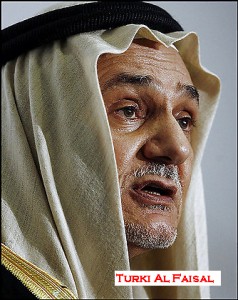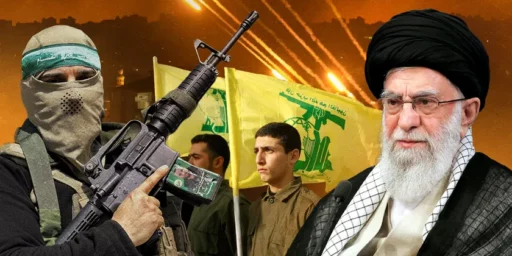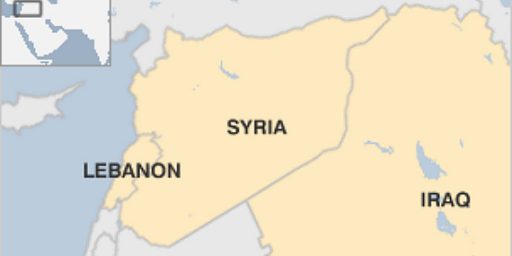Middle East Action Items for the Obama Administration
 In an op-ed in the Washington Post this morning, former ambassador from the Kingdom of Saudi Arabia to the United States Turk al-Faisal proposed an approach to achieving peace in the Middle East with five action items for the incoming Obama Administration:
In an op-ed in the Washington Post this morning, former ambassador from the Kingdom of Saudi Arabia to the United States Turk al-Faisal proposed an approach to achieving peace in the Middle East with five action items for the incoming Obama Administration:
- Call for an immediate withdrawal of Israeli forces from Shebaa Farms in Lebanon.
- Work with the U.N. Security Council for a resolution guaranteeing Iraq’s territorial integrity.
- Encourage Israeli-Syrian negotiations for peace.
- Declare America’s intention to work for a Middle East free of weapons of mass destruction, with a security umbrella and other incentives for countries that sign up and a sanctions regime for those that don’t.
The first of these items is clearly intended to defuse the situation among Lebanon, Syria, and Israel and, particularly, to reduce the influence of Hezbollah by eliminating its claims that it’s fighting a war of national liberation. The second item is presumably intended to head off any move towards an independent Kurdistan forming in northern Iraq. The fourth item appears to be aimed most directly at both Israel and Iran.
I hope that my associate here John Burgess will weigh in to comment on this op-ed since he’s been involved directly in some of the negotiations over the years IIRC. As I recall he’s more sanguine about the prospects for a durable peace between the Israelis and Palestinians than I am.






I think Turki Al Faisel is spot on, I think that would be a great idea but we’ll have to wait and see what PE Obama has in mind once he takes office.
The fly in the ointment seems to be:
Getting Israel to sign on to such an agreement will be nearly impossible.
#1: They still do not admit to having any WMDs
#2: What security umbrella can the world offer that the Israeli’s can beleive in?
#3: When have we ever been able to influence Israeli policy (ie. the settlements)?
#4: What possible “sanctions regime” against Israel, would ever get out of Congress/POTUS? It would be political suicide.
As one who very rarely agrees with anything Israel does, I am also very mindful of the problems they face (I just think a lot of the things they do are counterproductive). They are surrounded by enemies on all sides. As such, signing on to such an agreement would amount to unilateral disarmement(they have them, none of the other players do) They would be giving up something, even if they have yet to admit they have it, without any one else having to give up anything.
On the larger issues, by all means the first 3 points… And I would substitute a different 4th: The Israelis will end the expasion of the settlements, indeed “retract” (what that means is open to negotiation) them, and the Palestinians will give up the “right of return”.
Failing a settlement of those 2 issues, I see no hope for peace between Israel and Palestine. (and there is a Palestine. It does not have to exist in “reality” for it to exist in the minds of “Palestinians”).
While we’re at it, can we allow non-wahabbist Islam in the Kingdom?
I’ve been a bit busy over the holidays, so didn’t see this ’til just now. I’ll post a longer reply when I get a chance to think about it.
But for Michael: The Saudi do–sometimes grudgingly–admit other forms of Islam in the KSA. There are, after all, Shi’a in both the Eastern Province and in Jizan, in the southwest. They get the short end too often, but they are noting improvements over time, most recently the replacement of the Governor of Jizan by a more tolerant individual.
There are Sufis and other sects permanently residing in Mecca. The King has had public meetings with the head of the predominant Sufi order (I don’t recall which), with the meetings receiving local media coverage. Too, at Haj or during Umrah, Muslims of all sects can conduct their own rituals as long as they are not interrupting the general goings on.
Things are substantially more liberal than they were five years ago, not to mention 10 or 20 years ago.
I thought they were pretty much obligated to do that much, in order to keep their status as the guardians of Mecca and Medina. After all, the Saudi family wouldn’t last long if they didn’t.
The overt tolerance at Haj make be politically required, but the other actions were not necessary. The King is actually trying to create a culture of tolerance, but it’s a long, long row to hoe.